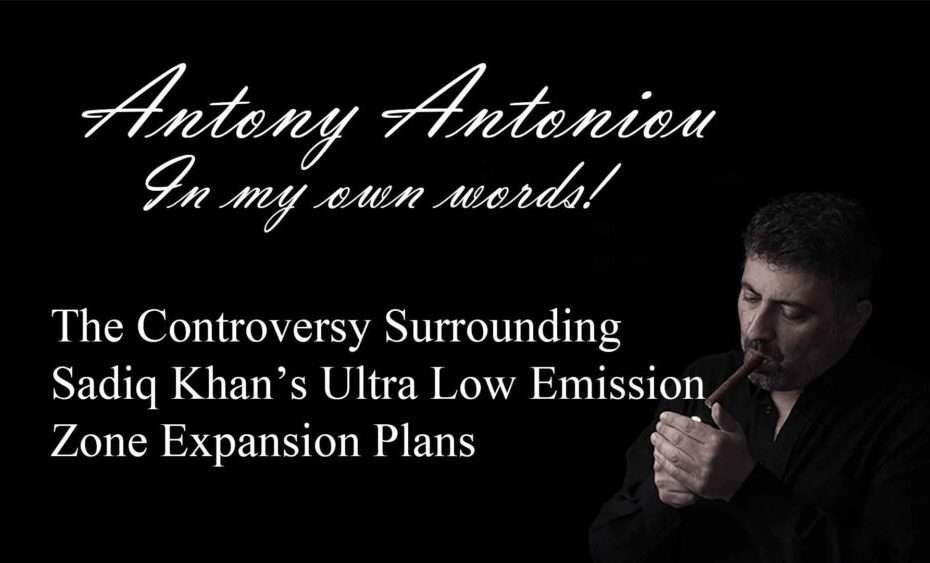The Controversy Surrounding Sadiq Khan’s Ultra Low Emission Zone Expansion Plans
Introduction:
In recent news, a judicial review has been initiated against Sadiq Khan’s proposed expansion of London’s Ultra Low Emission Zone (ULEZ). The legal action, led by five conservative-led councils, questions the rationale behind the scheme’s extension throughout the entire city, starting from the end of August. However, it’s important to note that ULEZ schemes are not limited to London, as similar initiatives exist in Glasgow, Derby, Bristol, and Birmingham, each with their own daily charges. This blog post delves into the ongoing judicial review and the concerns surrounding the ULEZ expansion plans.
Day One at the High Court:
Yesterday marked the commencement of the two-day judicial review process, where the initial arguments were presented. Howard Cox, the founder of Fairfield UK, shared his experience attending the court proceedings. While admitting that such hearings can be tedious, he highlighted the significant turnout and absence of the press. Cox pointed out that the conservative councils, who initiated the legal action, aimed to challenge the ULEZ extension based on the procedural aspects of the decision-making process.
Understanding Judicial Reviews:
To shed light on the matter, it’s crucial to understand the purpose of a judicial review. Its objective is to determine whether a decision-making process was irrational or based on flawed reasoning. Cox drew upon his involvement in a judicial review against the government’s decision to administer COVID-19 vaccines to children. In this case, as well, the burden lies in proving that the decision lacks a rational basis and fails to align with the available evidence.
Evidence and Public Consultation:
Cox highlighted the significance of evidence in the ongoing review. He pointed to the previous year’s public consultation, which revealed that two out of three respondents disagreed with the extension of ULEZ. Notably, around 5,000 supporters of Fairfield UK participated in the consultation. However, their responses were counted as a single response, disregarding the vast number of opposing views. This discrepancy in the process raises concerns about the legitimacy of the decision-making process.
The Impact of ULEZ Expansion:
One of the major concerns associated with the ULEZ expansion is its potential burden on individuals and businesses. Cox emphasized that the additional charges, such as the daily fees in London (£12.50), Birmingham (£8), and Bristol (£9), could have adverse effects on low-income families, small businesses, and white van drivers. He also highlighted the significant amount of fines collected from the existing ULEZ implementation, amounting to £400 million within 18 months.
Fuel Watchdog Campaign:
Shifting the focus, the discussion turned to the efforts of Fairfield UK in advocating for a Fuel Watchdog. For the past five years, Cox has championed the cause, urging for a regulatory body to monitor fuel prices. Unlike other consumer goods, fuel prices often experience discrepancies and lack transparency. Cox referenced instances where petrol stations were found to overcharge consumers by 6 pence per litre, resulting in millions of pounds of additional costs. Recognizing the need for such oversight, Cox praised recent acknowledgement from regulatory authorities regarding collusion and manipulative practices within the fuel industry.
Political Aspirations and Scrapping ULEZ:
The conversation shifted towards Cox’s political aspirations. While not standing as a Conservative candidate, Cox explained his decision to run for London mayor under the Reform Party. He cited the lack of a candidate with a proven track record in tackling fuel-related issues and expressed his commitment to addressing concerns such as the ULEZ expansion, low-traffic neighborhoods, and excessive fines. Cox unequivocally stated his intention to scrap ULEZ from day one if elected, highlighting the regressive nature of the tax and its adverse impact on various sections of society.
Conclusion:
The ongoing judicial review into Sadiq Khan’s ULEZ expansion plans has sparked debate and raised concerns about the decision-making process. The review aims to determine whether the decision to expand ULEZ lacks rationality and sufficient evidence. The potential impact on individuals and businesses, coupled with the need for fuel price oversight, adds to the complexity of the situation. Meanwhile, Cox’s political aspirations and his promise to scrap ULEZ on day one present an alternative perspective for Londoners to consider in the upcoming mayoral elections. As the proceedings continue, the outcome of the review will have far-reaching implications for London’s environmental policies and the lives of its residents.

